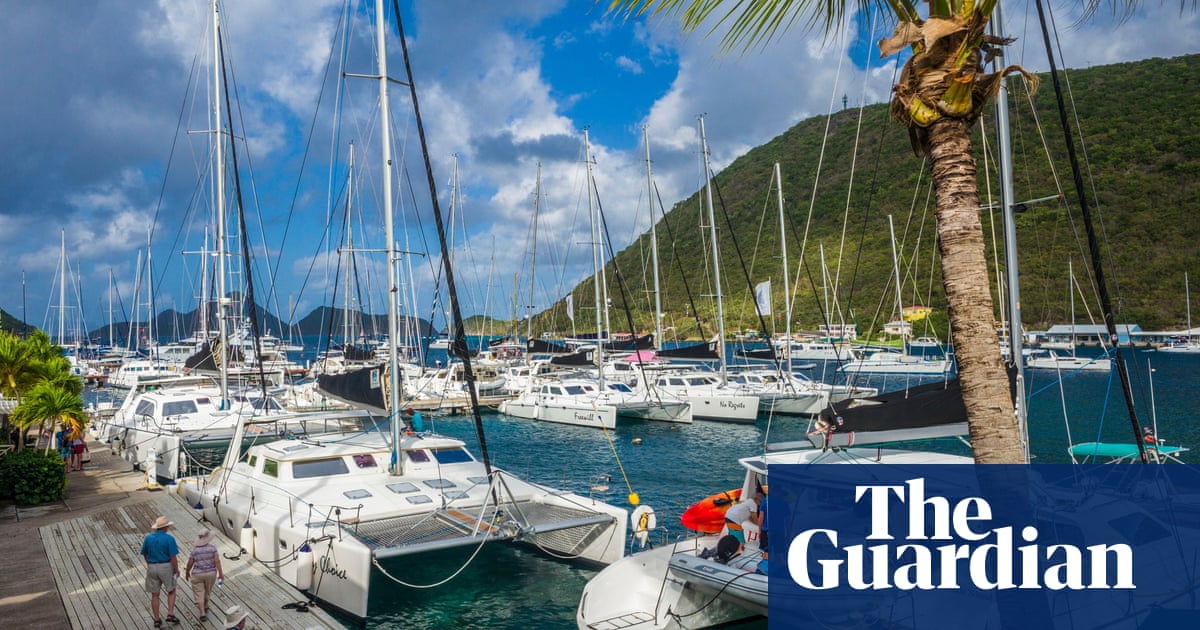The UK is edging towards a constitutional showdown with some of its overseas territories after offshore financial havens missed a final deadline to introduce corporate transparency measures aimed atcracking down on “dirty money”.
Five overseas territories (OTs) including theBritish Virgin Islandsand Bermuda had pledged to introduce registers of company ownership, accessible to those with a “legitimate interest”, by June this year.
The measure is aimed at tackling the reputation of some of the UK’s semi-autonomous island OTs forpermitting “criminals and kleptocrats”to hide their business dealings behind a web of corporate secrecy.
Four of the territories failed to hit Monday’s deadline, the latest in a series of delays to frustrate ministers trying to push through transparency upgrades.
The government’s patience with the BVIs is understood to be wearing thin, although officials are happier with the progress ofBermuda, Anguilla and Turks & Caicos.
MPs and campaign groups advocating for tougher measures to fight financial crime hit out at all of the territories that missed the deadline.
One MP accused the island havens of “defying the will of parliament”, while another called on the government to consider overriding the territories’ autonomy by issuing an order in council. This is a rarely used instrument that must be issued by the king on the advice of the privy council, which comprises government ministers and other senior figures.
One of the most high-profile occasions was in 2000 when an order in council was used to decriminalise homosexuality in five Caribbean territories. Ministers are understand to be refusing to rule out this option for territories that continue to drag their feet.
Andrew Mitchell, a former shadow foreign secretary, said the government should now consider deploying the order.
“When overseas territories behave like this, it brings the whole UK family, and our status as a world-leading financial centre, into disrepute. Enough is enough,” he said. “The UK government must now consider every tool at its disposal to ensure that when international agreements are disrespected by our overseas territories there are serious consequences.”
Joe Powell, the leader of an all-party parliamentary group on corruption and responsible tax, is expected to write to the premier of the British Virgin Islands (BVIs) to express his concerns.
Successive governmentshave been pushing OTsand a separate group of crown dependencies, such as Jersey, Guernsey and the Isle of Man, to introduce fully publicly accessible registers of beneficial ownership (Parbos).
At a meeting in London last November, five OTs promised to introduce legitimate interest access registers of beneficial interests (Liarbos) as a prelude to further steps.
The MP Lloyd Hatton said the failure to do so by June meant that territories such as the BVIs were “defying the will of parliament for the third time”, a reference to previous deadlines for the legislation that have been missed.
A coalition of anti-corruption campaign groups includingTransparencyInternational and Spotlight on Corruption said in a joint statement: “This undermines the UK’s credibility on anti-corruption, damages our economy, weakens our national security and fuels global injustice.”
Sign up toBusiness Today
Get set for the working day – we'll point you to all the business news and analysis you need every morning
after newsletter promotion
They said the government should be prepared to “escalate its response”, understood to be a reference to an order in council.
The group, which is known as the UK Anti-Corruption Coalition, has also raised concerns about draft proposals brought forward by the BVIs for the registers. These would notify company owners of requests to access their corporate data and would also allow them to apply for an exemption to disclosure, among other concerns.
Margot Mollat, a senior manager at Transparency International UK, said: “The BVIs’ proposed access regime is not compatible with global corporate transparency efforts.”
A spokesperson for the BVI government said: “We believe that our recently announced legitimate interest policy, which enables access to beneficial ownership information, providing there is a legitimate interest for doing so, strikes the right and proportionate balance between the transparency necessary to combat illicit finance and the protection of individual privacy and security.
“In the absence of a single global standard, we have worked closely with a wide range of international partners and stakeholders throughout the development of this clear and transparent policy. The policy is now being implemented while allowing time for necessary system enhancements, ensuring a smooth and effective rollout.”
Earlier this month, the BVIs were “grey-listed” by the Financial Action Task Force, the global money laundering and terrorist financing watchdog, indicating that the territory was under increased monitoring.
A Foreign Office spokesperson said: “Since day one, tackling illicit finance has been a top priority for this government. We therefore welcome the progress already made by many overseas territories in recent months in implementing more accessible registers of beneficial ownership as part of greater transparency efforts. They are showing commitment and leadership on this shared agenda.
“We have made very clear to our partners in the remaining overseas territories the importance of delivering on commitments they mutually agreed to – and have offered technical support to achieve this. We have also been clear that we expect rapid and robust action to be taken, given the crucial importance of tackling illicit finance and increasing transparency.”
